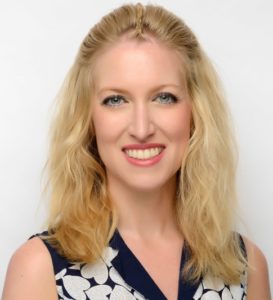Natasha Trendall graduated from the University of Exeter with BA History in 2003. She’s currently Communications and Engagement Manager, EY

What have you been doing since leaving Exeter, and what are you doing now?
Since leaving Exeter I’ve built a career in communications. I started in a global PR agency, doing external communications and media relations for a range of financial services clients. I then moved to a large British bank to do employee communications, taking on a number of different internal comms roles over a six year period, before moving to a large global professional services company to do communications & engagement.
Employee communications is less well known than PR and it’s certainly not a job or career I was aware of when I graduated. My job involves engaging employees in the company strategy, helping them to do their jobs well by supporting collaboration, information sharing and best practice and, ultimately, driving business objectives by helping to build a workforce of happy, productive and engaged employees.
“I enjoy translating complex business ideas into clear, concise messages that employees can understand… there is lots of scope for creativity and writing.”
Why did you choose this career? And what do you enjoy most about your work?
I fell into communications rather than choosing it, but I’ve stayed because I enjoy translating complex business ideas into clear, concise messages that employees can understand. I’m interested in being part of the machine that helps make work a better place for employees, and there is lots of scope for creativity and writing.
My job often involves working with the most senior leaders in an organisation (C-suite level), which is a privilege, and also demanding! The work is varied, from writing a message from the CEO to all employees, designing a campaign and running an event, to supporting a culture change programme.
What skills and experiences have been most useful for your career?
Writing, interpreting and organising information, study discipline, reading, editing, proofing and developing relationships with people outside my previous experience.
What advice would you give to a current student who wishes to pursue your career?
There often aren’t many entry level roles in internal communications, but getting any kind of communications experience will be helpful, whether that’s in Marketing, PR, media relations, brand, events or even HR – these are all related disciplines that work closely with employee communications and require many of the same skills.
Good people skills and emotional intelligence are also vital – you need to be able to develop relationships at all levels of an organisation and have confidence when dealing with very senior people, so any experience that helps you build those influencing skills will be very helpful.
“As current students entering the workforce now you will bring a unique perspective and understanding of your generation to employers of an older generation who need to communicate with people like you.”
As current students entering the workforce now you will bring a unique perspective and understanding of your generation to employers of an older generation who need to communicate with people like you – so leverage that advantage and think about how you like to be communicated with and what you would like your experience at work to be!
What are your plans for the future?
I’m currently studying part-time for an MSc in Psychology and interested in either pursuing that to become an occupational psychologist or moving into Human Resources – a role where I can be more directly involved in making the workplace better for people. I’m particularly interested in workplace mental health, wellbeing and belonging.
